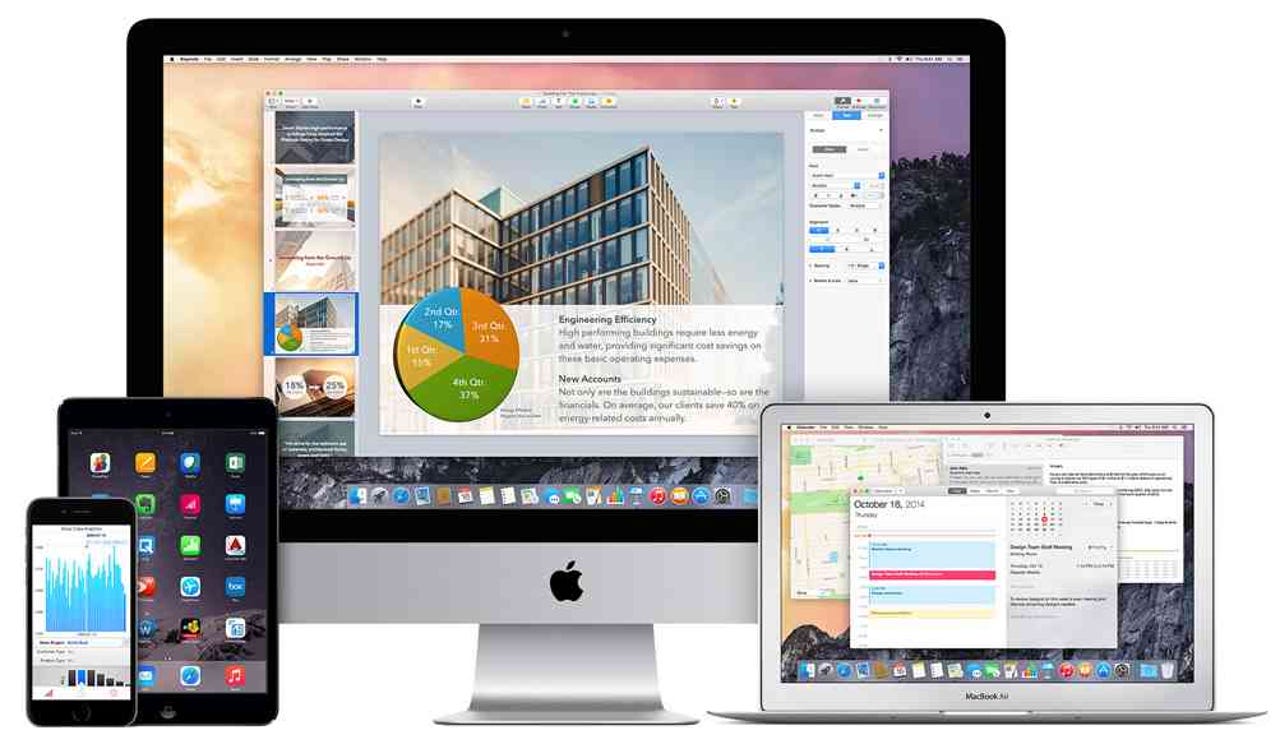Six reasons why Apple could top BlackBerry's enterprise heyday


Apple is reportedly bulking up its sales team to better target enterprises as it tries to ensure future iPad sales and growth. The news follows a broad partnership with IBM and highlights how Apple is becoming more than just a consumer vendor.
Tech Pro Research
The big question: How successful can Apple be in the enterprise? Reuters reported Apple is hiring direct sales people to target corporate customers, but there are other variables to ponder. Here's a look at six reasons why Apple could become a real enterprise player and rake in more cash.
Previously: Hands-on with new Office for iPhone (pictures) | Apple details AppleCare Enterprise IBM support | Apple's R&D soars to $6B in 2014; global cash reserves at $155B | Inside the Apple-IBM deal: How will it work, and what to expect
- A direct sales approach will have an impact. Apple's partnership with IBM gives it an inroad to the enterprise as well as a fleet of consultants, but to sell a halo of products — Mac, iPad and iPhone as well as tools to manage them better — the company will need its own sales force. The Reuters report about Apple's hiring plans on the sales front serves as evidence that Tim Cook gets the enterprise game as well as the buying cycle.
- Apple has the funds for multiple enterprise-savvy acquisitions. One model for mobile device manufacturers has been to buy their way into managing multiple smartphones and tablets for corporations. BlackBerry is betting its turnaround that enterprise mobility management trumps actual devices. Microsoft is betting the same way with its cloud, platform and productivity master plan. VMware, Citrix, MobileIron and a bevy of others are all in the enterprise mobility management game. Why not Apple? Couldn't Apple acquire its way into the game just like enterprise vendors have? Apple would still have to prove it could manage Android devices better than Samsung, but an enterprise mobility management acquisition isn't crazy. See: Buying enterprise mobility management: How important is independence?
- There's a sizeable app lead. Here's the reality if you're making enterprise apps — Apple is your best option. First, Apple devices are already in your company. Second, there's one platform to design for. And third, iOS is simply easier to secure because there aren't multiple operating system and device flavors like Android. With a direct sales force, Apple can play more the consultant role and give enterprises developer help. Apple's enterprise push reflects the reality that the company has a moat around its business that has to be defended soon.
- Tech leaders could use an enterprise friendly Apple. The challenge for enterprise technology leaders is to remain relevant to the business. CIOs can look trend setting with Apple — even though they're a bit late to the party. That fact alone will ensure that tech leaders will at least listen to what Apple has to pitch. Here's another reason why CIOs will listen to Apple: the company can be used as leverage against incumbents such as Dell, HP and Lenovo — three vendors use PCs as part of larger bundles that include servers, storage and other gear.
- Line of business leaders will be receptive. The growth in enterprise technology spending is going to the execs running business units and driving revenue. Apple will have far fewer hurdles pitching these executives relative to traditional IT.
- Apple has the incentives to make an enterprise push. How is Apple realistically going to grow given its revenue base? Yes, Apple cooks up new products like the Apple Watch and the iPhone 6 Plus, but innovation isn't easy. There are no guarantees that Apple can keep creating hits. From a business perspective, doesn't it make more sense to target corporate customers who aren't fickle and will buy devices for years based on habit? Enterprise customers are almost like an annuity that'll smooth out the inevitable product rough spots. For the fiscal year ended Sept. 27, Apple reported sales of $182.8 billion, up from $170.9 billion a year ago.